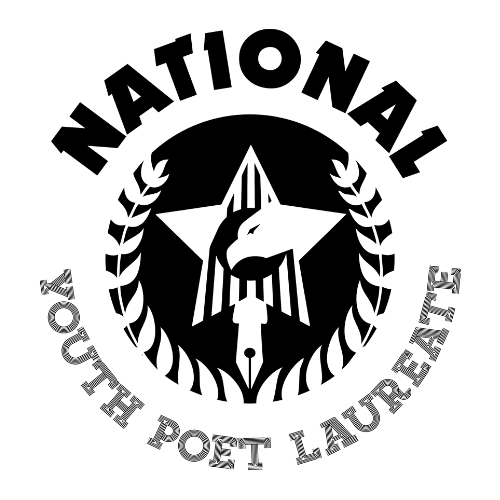Accessibility at National Youth Poet Laureate Program
The National Youth Poet Laureate Program and Urban Word are committed to the inclusivity of all youth who wish to participate in the National Youth Poet Laureate Program and Competition. Accessibility is considered at all levels, from the development of program materials to the planning of competitions.
The National Youth Poet Laureate Program must not exclude or limit youth participation based on race, color, religion, national origin, sex, or disability in compliance with federal law and regulations, in terms of both facilities and programs.
Accessibility Awareness
YPL Program Leaders are encouraged to involve all youth from their communities in The National Youth Poet Laureate Program activities. Additionally, each state arts agency also has an accessibility coordinator who may be helpful as a great resource who can also point you in the direction of other experts in the field as needed. A list of State Art Agency accessibility coordinators can be found here.
Additionally, please ensure you are using proper terminology for writing and speaking about youth with a disability.
Other useful resources include:
https://poets.org/poetryanddisabilityjustice
Section Styles split-section
before submitting
Perform a Sensitivity Scan Before You Submit Your Poetry Portfolio
We ask that YPL program leaders and poetry mentors (including the featured poets) do a sensitivity scan of their poems before deciding which poems to submit in their portfolio.
Below is a list of some potential sensitivity issues to guide your scan. Please review your poems for language, themes, and metaphors that:
● Target marginalized groups, such as (but not limited to) D/deaf, disabled, neurodivergent, and sick people; people of color, Indigenous people, women, lesbian, gay, bisexual, and trans people; people discriminated against for being from other countries, Muslim people, religious minorities, poor people, incarcerated and formerly incarcerated people, etc.
● Include slurs used to refer to groups to which the author does not belong
● Uses people’s lived experiences, such as illness and disability, as pejorative metaphors and slurs (Ex: “blind to the fact,” “deaf to the truth,” “crippled by fear”)
● Appropriate the experiences or cultures of identities the poet does not hold, including the use of dialect that is not from a lineage to which the author belongs
● Call for violence against vulnerable people or groups
We encourage you to be vigilant in steering clear of language that may embody ableism, as we encounter such language often. If you are not familiar with ableist language, this short article offers a quick overview and the web page it mentions at Autistic Hoya provides a more in depth overview with ideas for alternate language.
Section Styles split-section
recommended process
Making Your The National Youth Poet Laureate Program Program Accessible
To ensure that a young person’s needs are considered for The National Youth Poet Laureate Program, we recommend the following process at all levels of competition:
Create opportunities for youth to share and dialogue with program coordinators regarding their accessibility needs. All materials should share how youth can submit requests for accommodations. To be certain that the playing field is level, connect with the student and/or his or her advocate. Their input will ensure that everyone is comfortable with the process and its outcome and that no incorrect assumptions around needs are being made.
Accommodations should enable each youth poet to deliver their best performance and create their best portfolio. Provide accommodations that seem appropriate and reasonable, for example, an adjustable microphone for a student whose voice may be unclear or quiet, ramps, or the opportunity to sit during the recitation for a student who cannot comfortably stand for a length of time.
Give judges general guidance on accessibility as it relates to any performances or portfolio. The initial interactive process with youth and their parents/guardians/advocates may also provide valuable insight with respect to educating the judges on accessibility and disability. Please disclose only what the youth and their parent/guardian would like the judges to know, if anything, as there may be instances in which youth would like their disability disclosed to the judges and other instances in which they would not. In some cases, a judge might request additional information about how a young person’s disability may impact their service as YPL. Before discussing this with the judges, please confer with the youth poet and their parent/guardian to determine the best approach to this inquiry. Remind judges that lowering expectations or overcompensating (ie. giving a higher score for a youth because of their disability) runs counter to the social policy of inclusion, and prevents disabled individuals from enjoying the benefits of equal citizenship. It also does a disservice to the other competitors. All should be judged fairly using the YPL evaluation criteria.
Accessibility Accommodations at Regional and National Finals
A youth who requires any accommodations in order to compete at the regional or state finals should notify the National Youth Poet Laureate Program director immediately upon being selected as finalist. Urban Word will make every effort to accommodate all youth needs.
A youth who requires any accommodations in order to compete in the National Finals should notify the Urban Word The National Youth Poet Laureate Program Director immediately upon being selected as regional finalist.
Content for this page was adapted from the Poetry Out Loud website, August, 2022.
https://www.poetryoutloud.org/teachers-organizers/accessibility/
